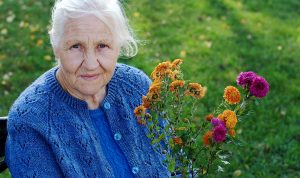 These are the words I most often hear when family members bring their loved ones to Millennium Memory Care. When Covid-19 started to spread throughout the U.S. in early March, Millennium Memory Care (MMC) was one of the few communities that limited non-essential visitations, provided all employees with PPE, and required them to wear N95 masks. This was weeks before the State of NJ mandated such actions in Long Term Care homes. At MMC, all possible infection prevention procedures were implemented, and every realistic safety protocol was adopted.
These are the words I most often hear when family members bring their loved ones to Millennium Memory Care. When Covid-19 started to spread throughout the U.S. in early March, Millennium Memory Care (MMC) was one of the few communities that limited non-essential visitations, provided all employees with PPE, and required them to wear N95 masks. This was weeks before the State of NJ mandated such actions in Long Term Care homes. At MMC, all possible infection prevention procedures were implemented, and every realistic safety protocol was adopted.
By the end of the March I was getting numerous phone calls from families and vendors telling us how great we did in keeping our communities free of the virus. We were able to maintain many of our activities, our residents had daily walks outside for fresh air, and we increased fruit and vegetable consumption for additional essential vitamins. And of course, we connected residents with their families virtually as often as possible to decrease everyone’s stress from the uncertainty of the situation.
On April 4th, we sent one of our residents to the hospital for a bleeding issue and learned that the resident was COVID-19 positive. I knew right away that this was an inevitable disaster, but we had several plans of actions in place.
After testing all our residents, we found that most of our residents were infected yet asymptomatic. This was not surprising. Our communities were designed to encourage people with dementia to socialize and live as a close family, a therapeutic approach that has been enormously successful in improving quality of life. Our care philosophy focuses on socialization and individual attention and we do a lot of group activities. Isolation is antithetical to our approach to dementia care.
However, I of course listened to and followed all the mandates from the state. We created isolation for residents, and most residents who tested positive were allowed in the common areas, while the minority who tested negative had to be isolated to protect them from infection. Concurrently, some significant behavioral problems began among our residents. They were very depressed, did not want to eat, were very withdrawn, and some of our happiest residents no longer smiled. Isolation was not a great option, but we had to follow state recommendations. To compound matters, I received calls from families who essentially said they would rather their loved one have COVID-19 and die than be in isolation with absolutely no quality of life.
During this period, I had the opportunity to visit several assisted living facilities and nursing homes for assessments. What I saw was very sad: many nursing homes were forced to keep residents in their rooms with masks on and with no activities or interactions.
We decided to designate homes for residents based on their virus status. In other words, we will have COVID positive homes and COVID negative homes so that we can provide care to residents in an environment that is safe and suited to their condition. This way, residents do not need to sit in their rooms during potential incubation periods, and we can continue to offer them activities, social dining and as much of their usual routine as possible in order to give them the best quality of life. Smaller communities, similar to our own, may be able to use this model to maintain quality of life during this or any future pandemics.
On the one hand, we are all trying to limit and decrease exposure to this horrible virus, but on the other hand, we should not forget about the social needs of our elderly residents. As much as possible, their lifestyles should not be so drastically altered as to cause them to be lonely, isolated, and depressed.
Many nursing homes and large assisted living facilities have spacious wings and dedicated units for COVID-19 residents, yet they still have increases in positive cases. Isolation may or may not work, but it certainly negatively affects residents’ lives. Families that bring their loved ones to memory care communities today know that it is a strong possibility that their loved ones will be exposed to the virus. But they also know that with great care, love and interesting, purposeful activities, their loved ones can still have some quality of life for their remaining days.
During these difficult times, the staff at MMC is doing everything possible to maintain our residents’ health and continue to offer the best care possible. Yes, unfortunately we lost some of our dear residents, but every family expressed their appreciation for our care, and knew their loved ones had a quality of life before they passed away.
